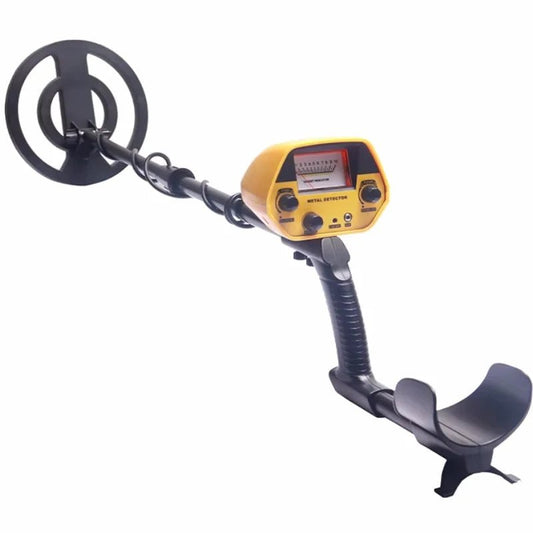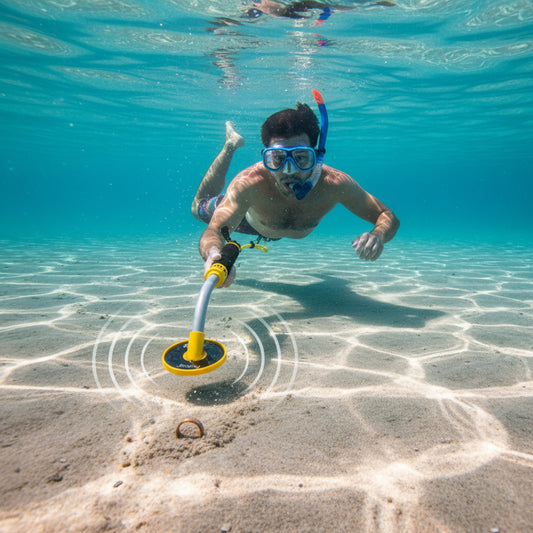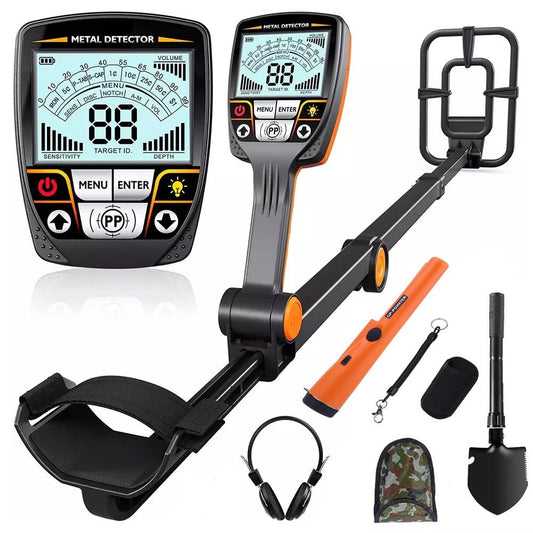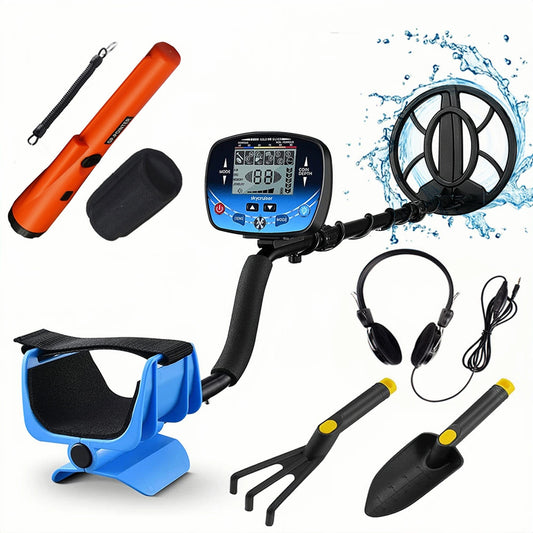
Metal Detecting in the Bahamas: Nassau, Shipwrecks, and Pirate Gold
Share
The Bahamas is a legendary destination for treasure hunters, thanks to its turquoise waters, pirate history, and countless shipwrecks.
Whether you’re exploring the beaches of Nassau, diving for lost Spanish gold, or hoping to uncover relics from the golden age of piracy, metal detecting in the Bahamas offers adventure and the chance for real discovery.
Here’s your comprehensive guide to the best places to hunt, what you might find, and the legal tips you need for a safe and successful treasure hunt.
The Pirate Republic: Nassau’s Legendary Past
Nassau, on New Providence Island, was once the heart of the “Republic of Pirates.” From 1690 to 1720, infamous pirates like Blackbeard, Henry Every, and Benjamin Hornigold called these shores home.

The shallow waters around Nassau allowed pirates to evade warships and stash their loot, while the city itself became a haven for outlaws and treasure seekers. Pirate gold, silver, and relics from this era are still rumored to be hidden along the coast and in the waters nearby.
Shipwrecks and Sunken Treasure

The Bahamas is home to hundreds of shipwrecks, many of which are legendary for their lost cargoes of gold, silver, and jewels. The most famous is the Nuestra Señora de las Maravillas, a Spanish galleon that sank in 1656 loaded with treasure.
Over the centuries, millions in silver and gold have been recovered from its wreckage, but much remains scattered along the ocean floor. Modern explorers and archaeologists continue to find coins, emeralds, and artifacts from this and other wrecks.
Other notable shipwrecks include:
-
The SS Sapona off Bimini, a popular dive and snorkel site with visible remains and the chance to find relics from its Prohibition-era history.
-
Dozens of merchant and pirate vessels lost to storms, reefs, and naval battles, especially around the Berry Islands, Grand Bahama, and the Exumas.
Where to Metal Detect: Best Beaches and Islands

Nassau and Paradise Island
Nassau’s public beaches, such as Cable Beach and Junkanoo Beach, are popular with tourists and detectorists alike. Paradise Island, just across the bridge, also offers sandy stretches where you might find modern jewelry, coins, and the occasional relic.
Exuma and Pig Beach
Exuma’s beaches are famous for their beauty and the swimming pigs, but they’re also great spots for metal detecting. Detectorists have found rings, coins, and even diamond jewelry in the sand and shallow water.
Berry Islands
Remote and less crowded, the Berry Islands are home to both modern finds and the occasional pirate-era artifact. Devil’s Cay and Great Harbour Cay are favorites for adventurous treasure hunters.
Bimini
Bimini is not only known for its shipwrecks but also for its long, sandy beaches and crystal-clear waters—ideal for both beach and shallow water detecting.
What Can You Find?

Metal detecting in the Bahamas can yield a wide variety of treasures, including:
-
Modern coins (Bahamian dollars, US dollars, and foreign currency)
-
Gold and silver jewelry lost by tourists
-
Watches, sunglasses, and small electronics
-
Pirate-era coins, musket balls, and relics (rare but possible)
-
Shipwreck artifacts, especially after storms or hurricanes
Some detectorists have even found treasure chests, gold bars, and diamond rings—proof that the Bahamas still holds secrets from its pirate past.
Legal Tips for Metal Detecting in the Bahamas

-
Beaches: Metal detecting is legal on public beaches and with permission on private land. Most resorts allow detecting on their beachfronts, but always ask hotel management first.
-
Shipwrecks: Salvaging from historic wrecks is regulated. Removing artifacts or treasure from shipwrecks without a government permit is illegal, and the government has issued moratoriums on new salvage licenses.
-
Protected Areas: Avoid national parks, marine reserves, and marked archaeological sites.
-
Exporting Finds: Significant historical finds or artifacts may require reporting to the Bahamian government, and exporting them without permission is prohibited.
-
Customs: You can bring a metal detector into the Bahamas for personal use, but always declare it at customs and be prepared to explain your intentions.
Safety and Responsible Detecting
-
Detect Early or Late: The best time to hunt is early morning or late evening, when beaches are less crowded and the sun is less intense.
-
Stay Hydrated: Bahamas sun can be fierce—bring water, sunscreen, and a hat.
-
Travel with a Buddy: Especially when exploring remote beaches or snorkeling near wrecks.
-
Respect the Environment: Fill all holes, remove trash, and leave the beach cleaner than you found it.
-
Be Discreet: Treasure hunting is popular, but always be courteous to locals and tourists.
Tips for Success
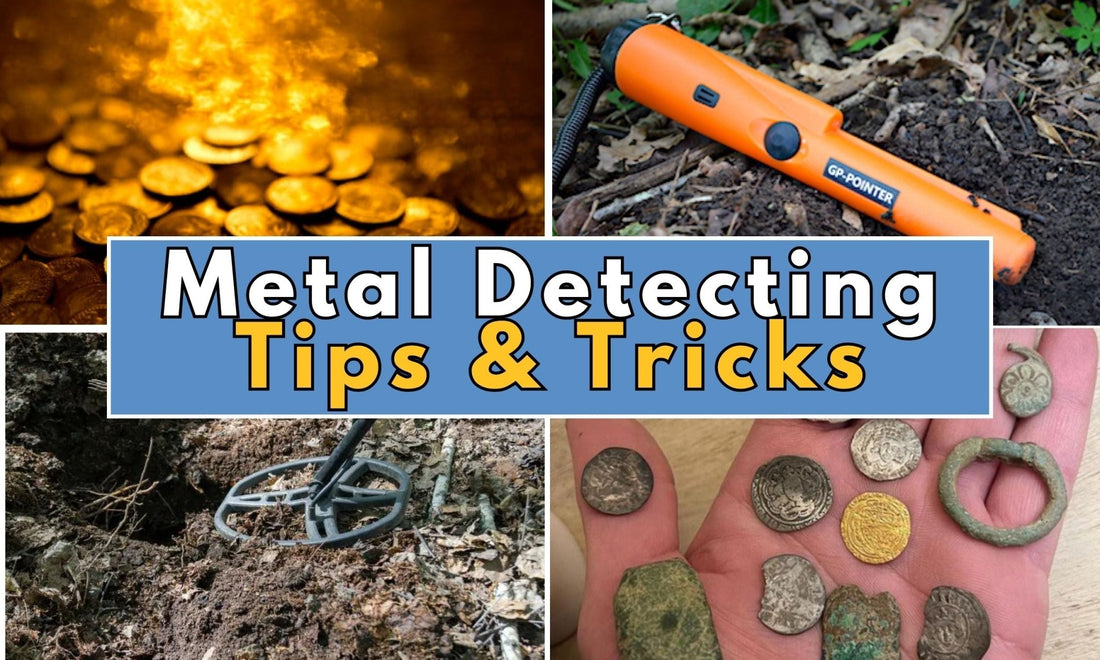
-
Use a waterproof detector for wet sand and shallow water.
-
Focus on high-traffic areas: near entrances, lifeguard stands, and popular swimming spots.
-
After storms or hurricanes, new treasures are often uncovered by shifting sand.
-
Join local or online metal detecting communities for tips and recent finds.
Learn more about our most useful metal detecting tips.
Conclusion
Metal detecting in the Bahamas is an adventure that connects you to a world of pirates, shipwrecks, and sunken treasure. With open laws on public beaches, a history of legendary finds, and the thrill of discovery, the Bahamas is a top destination for treasure hunters. Always respect local rules, hunt responsibly, and enjoy the excitement of searching for your own piece of pirate gold in these storied islands.

